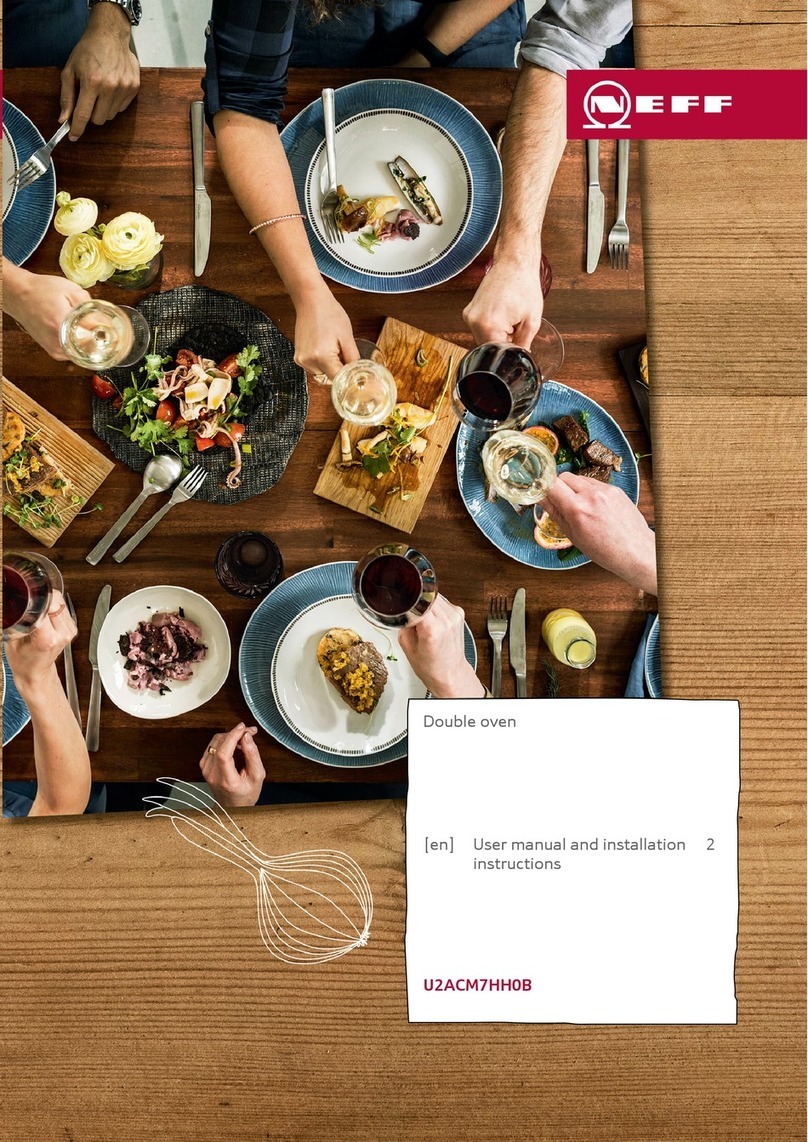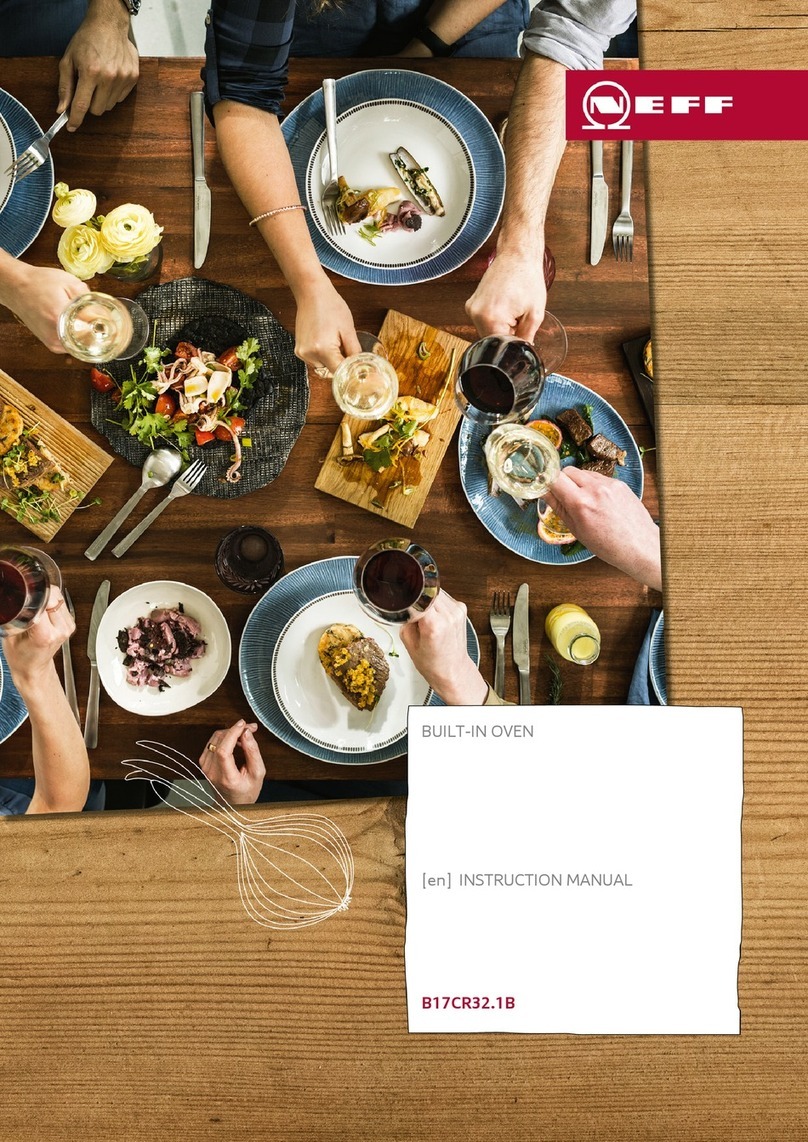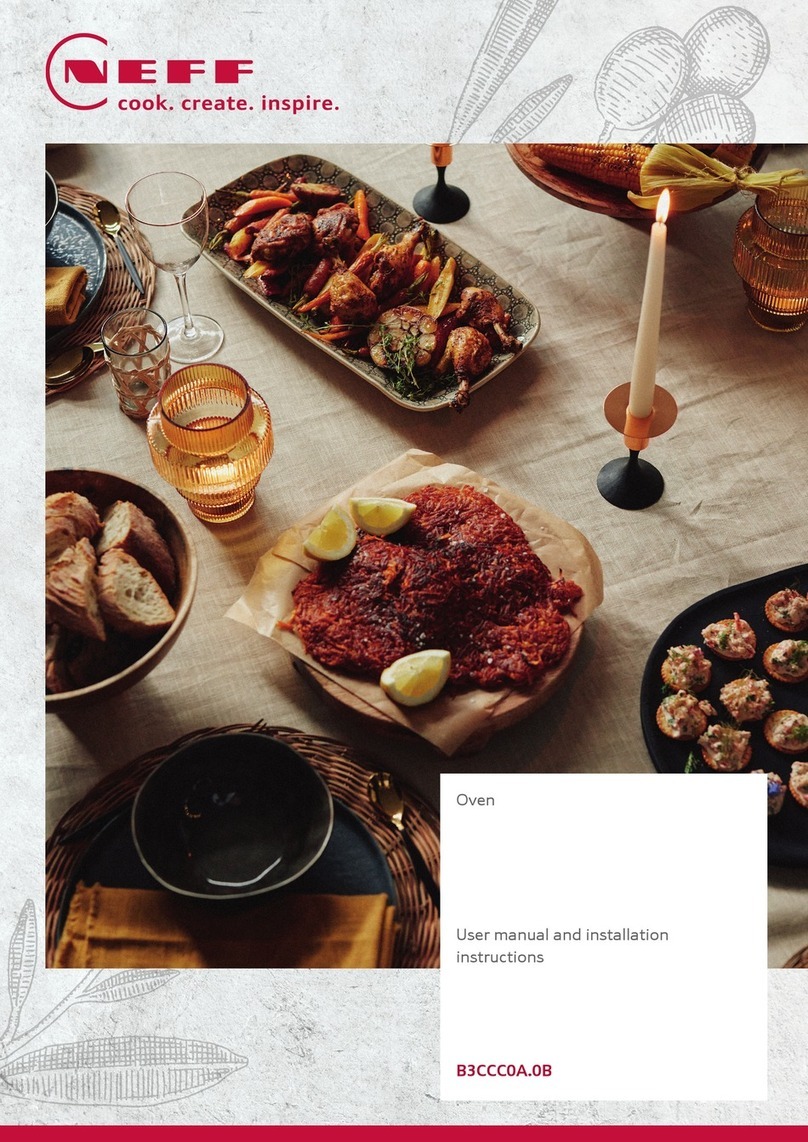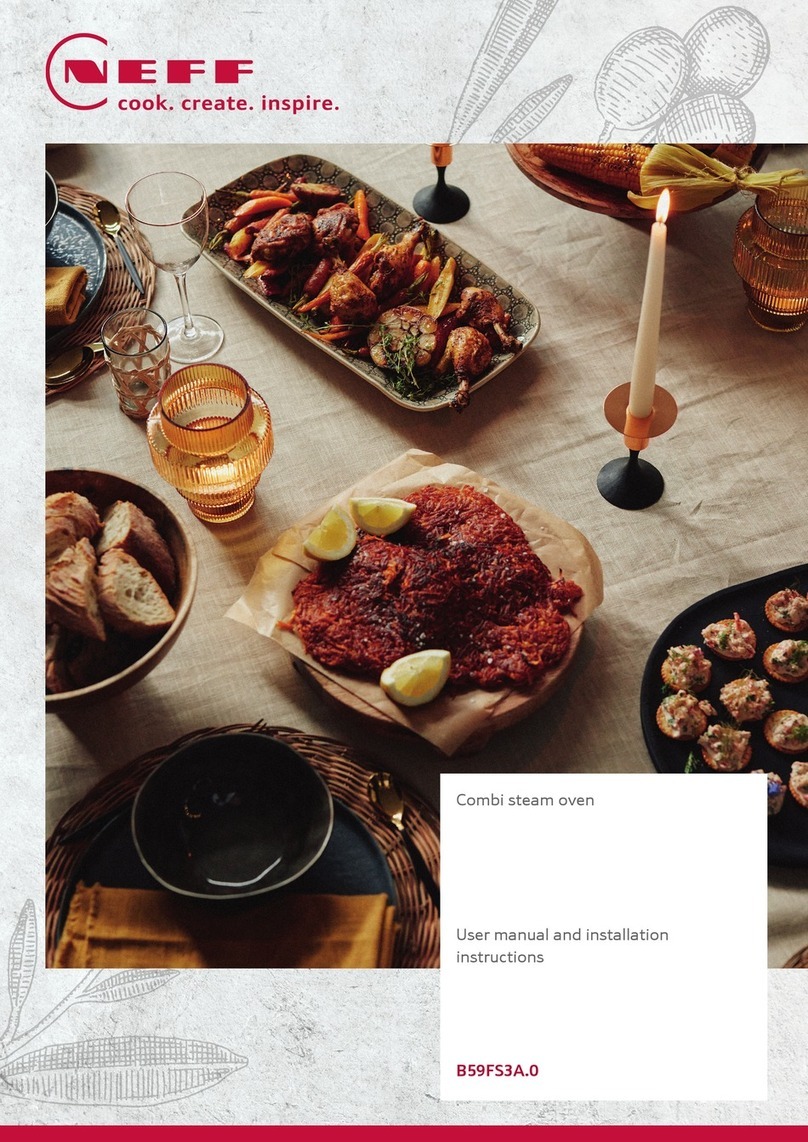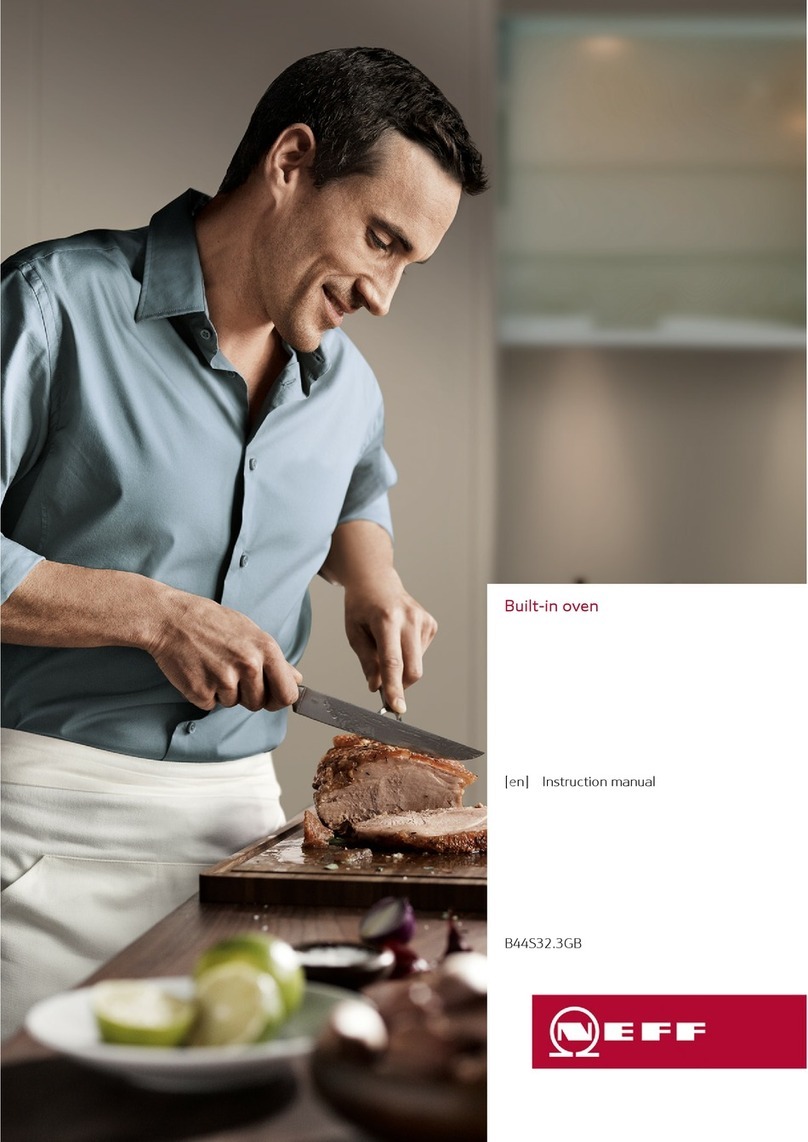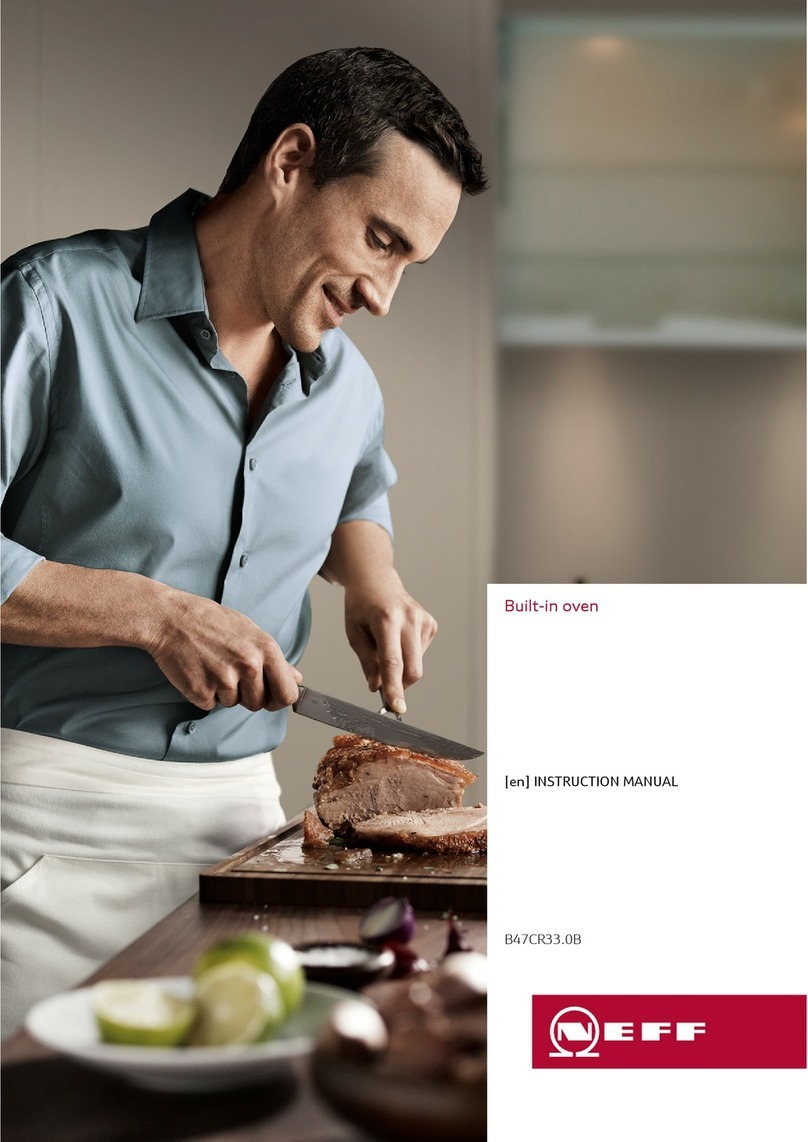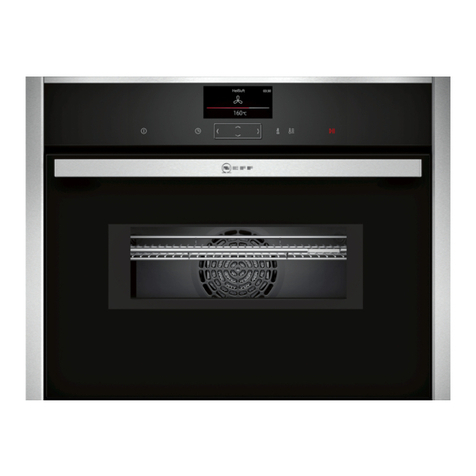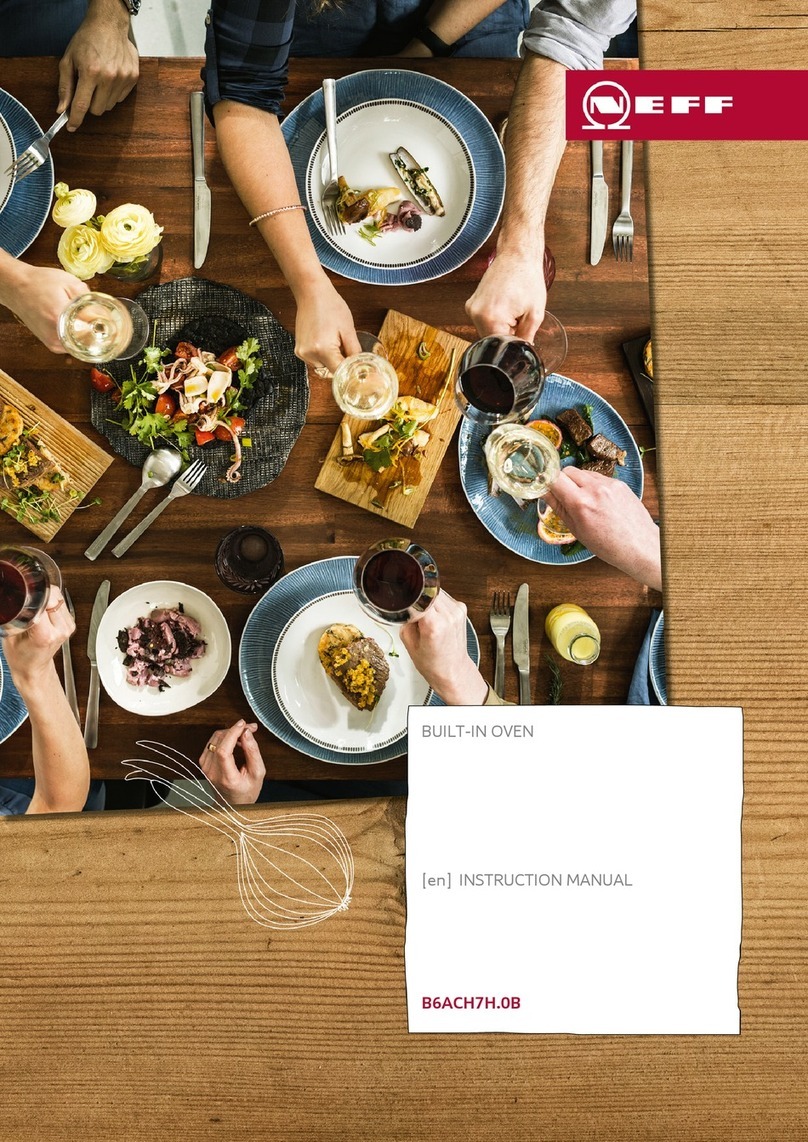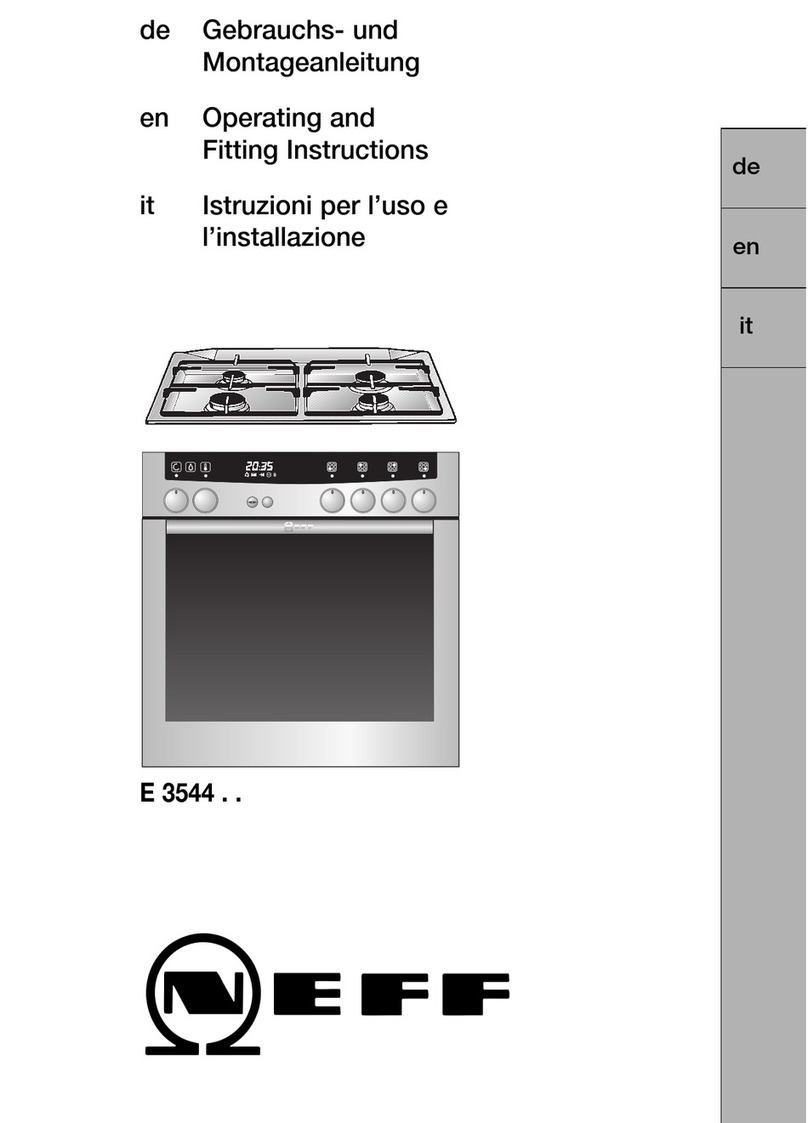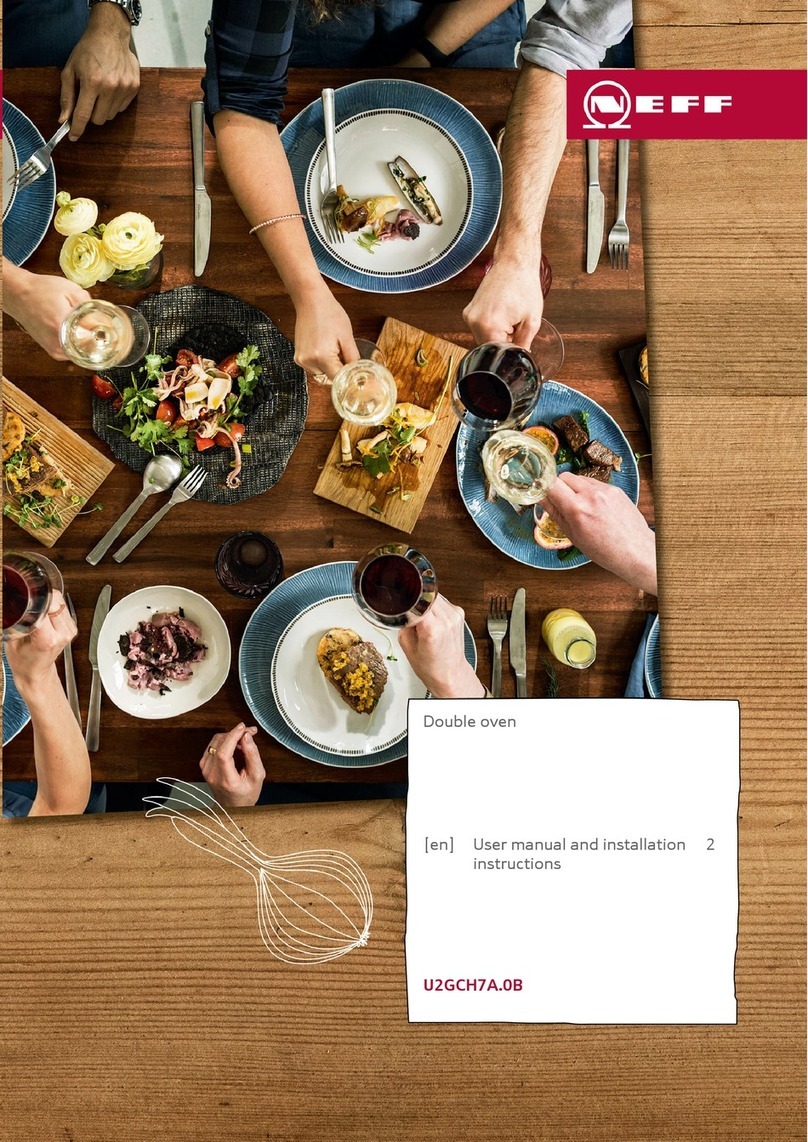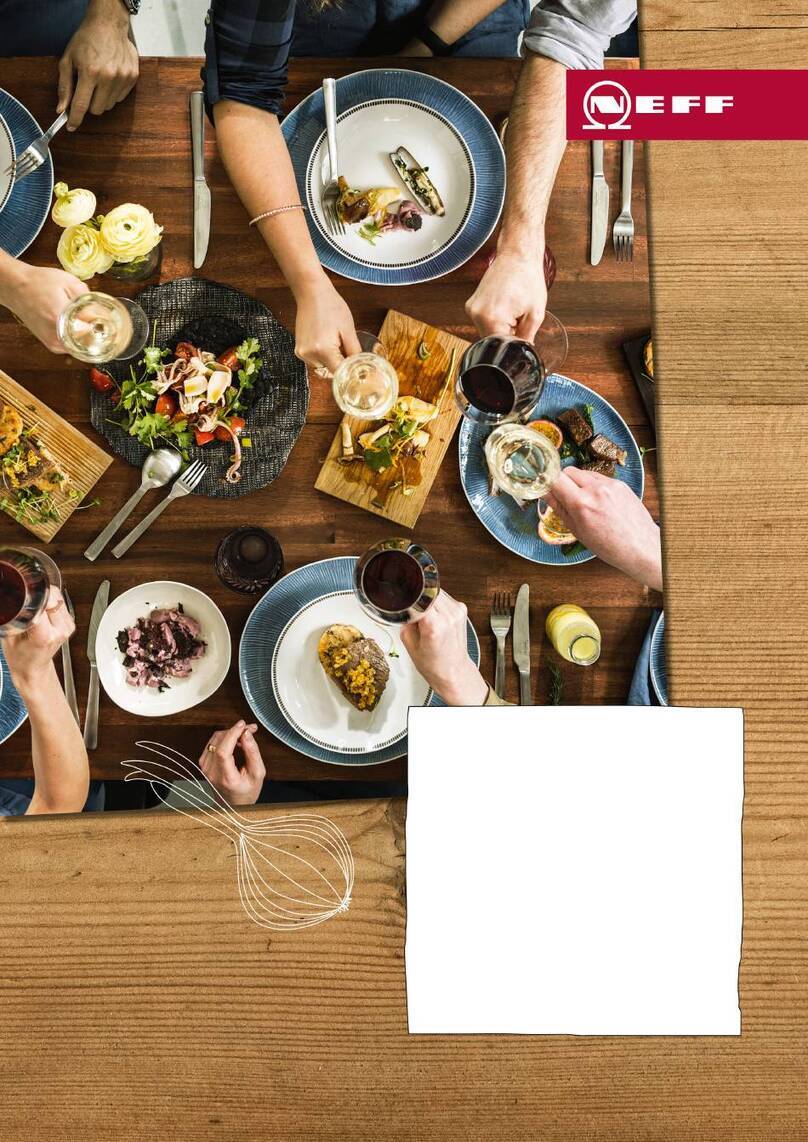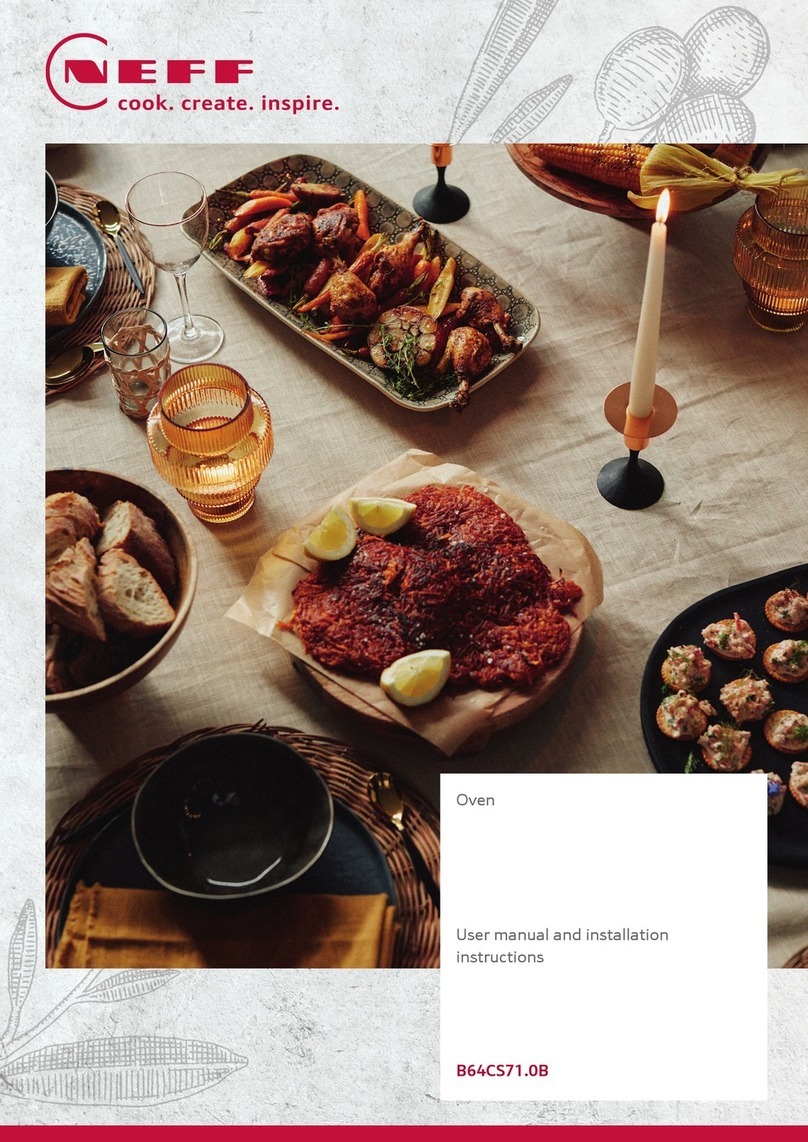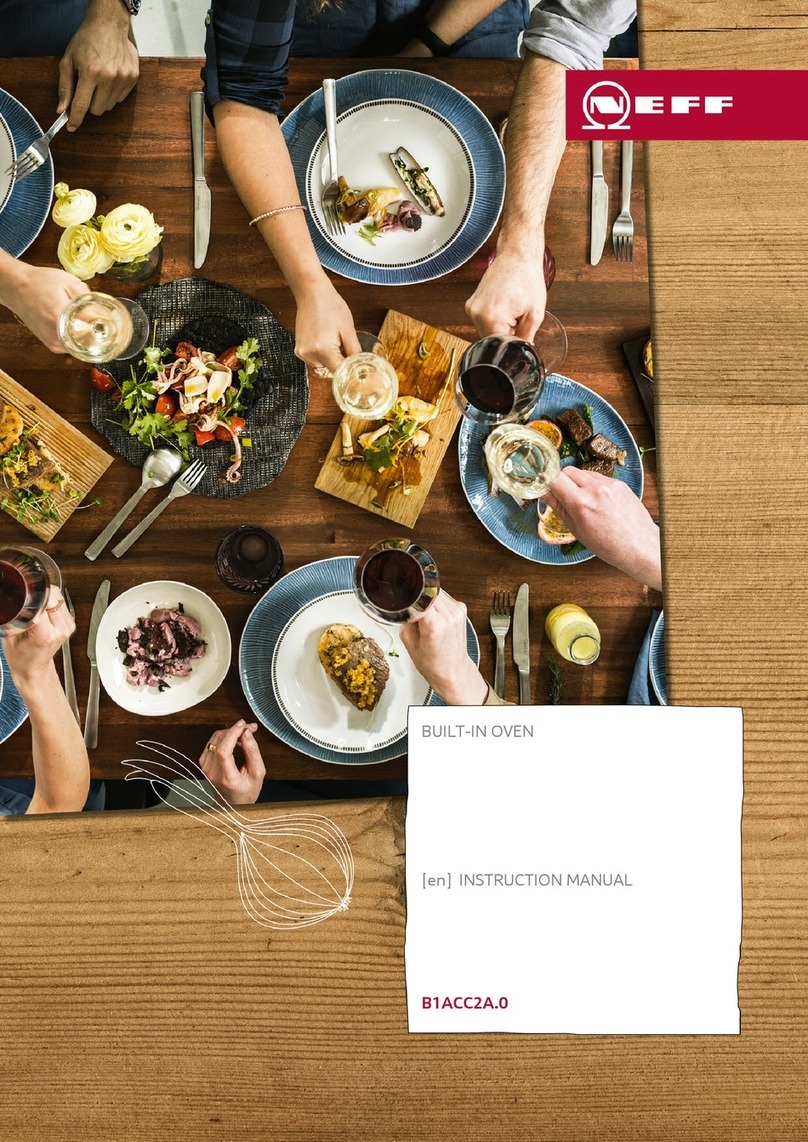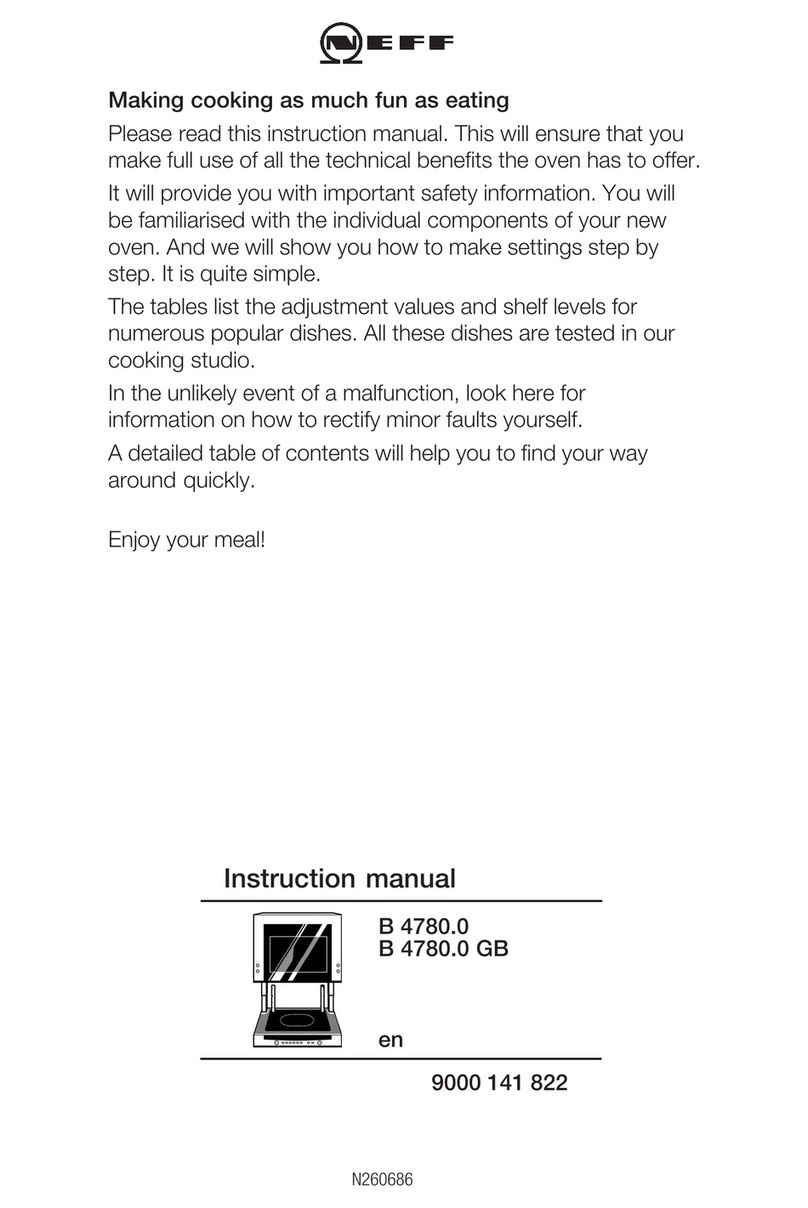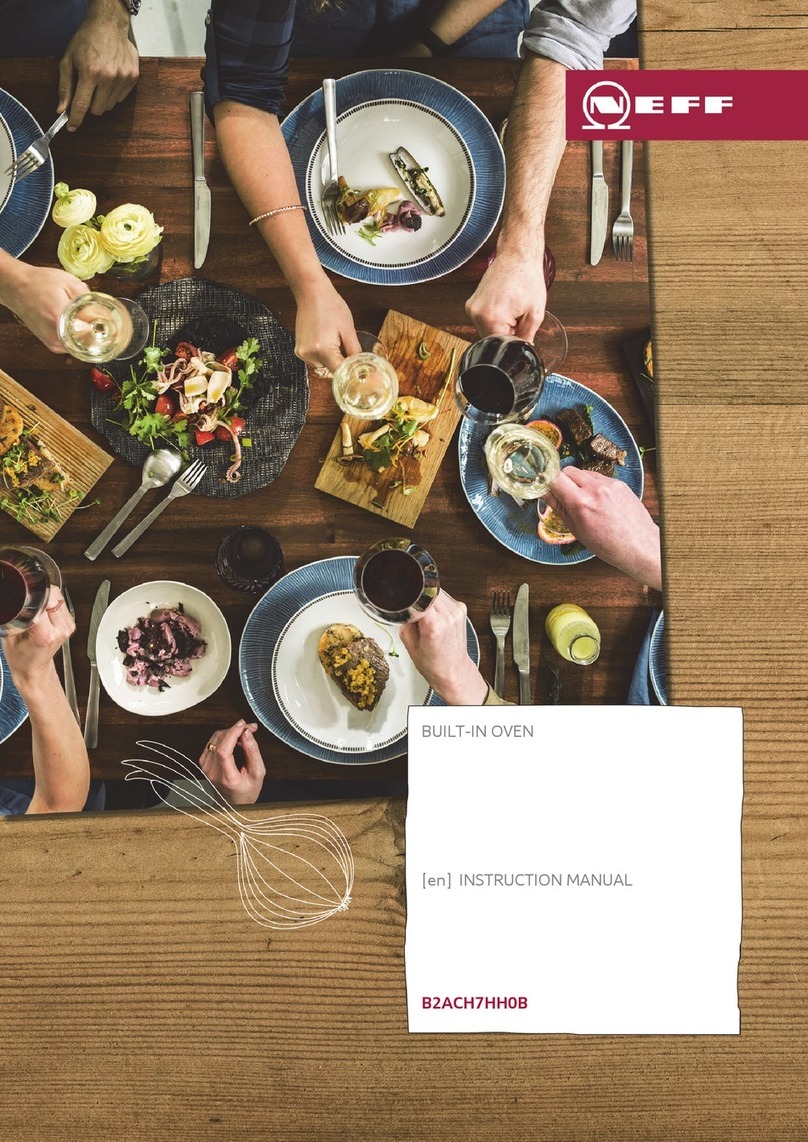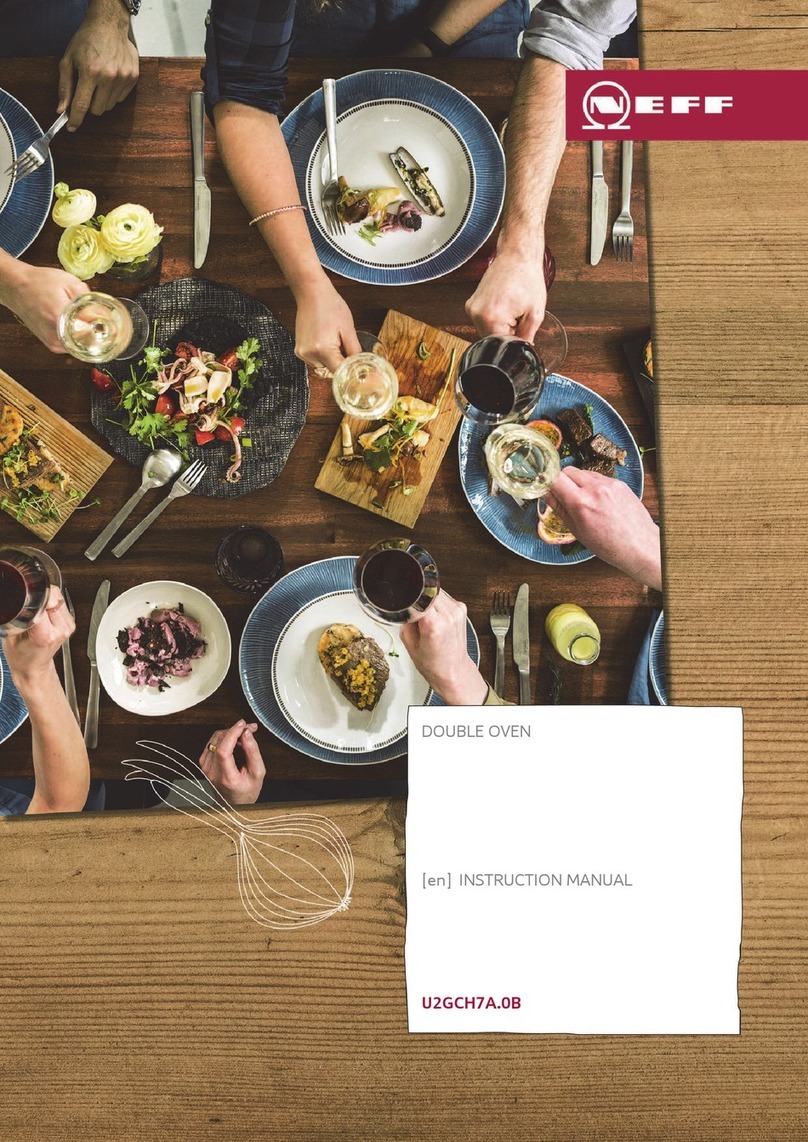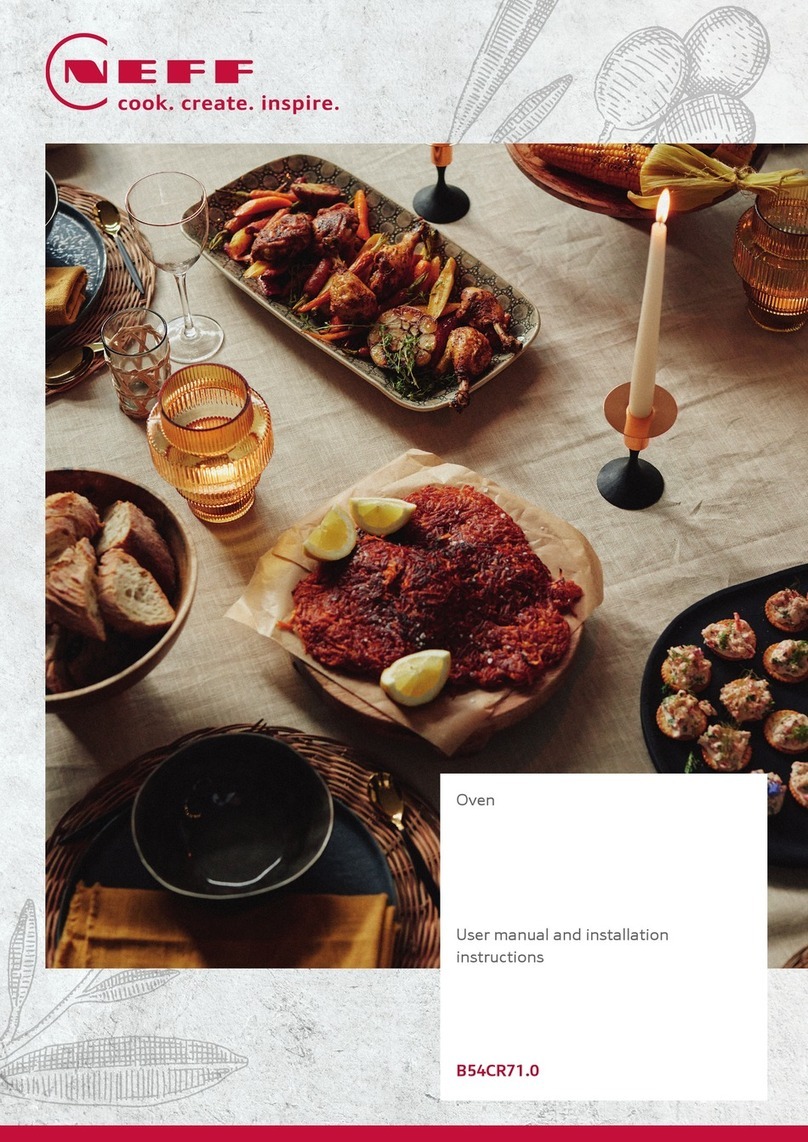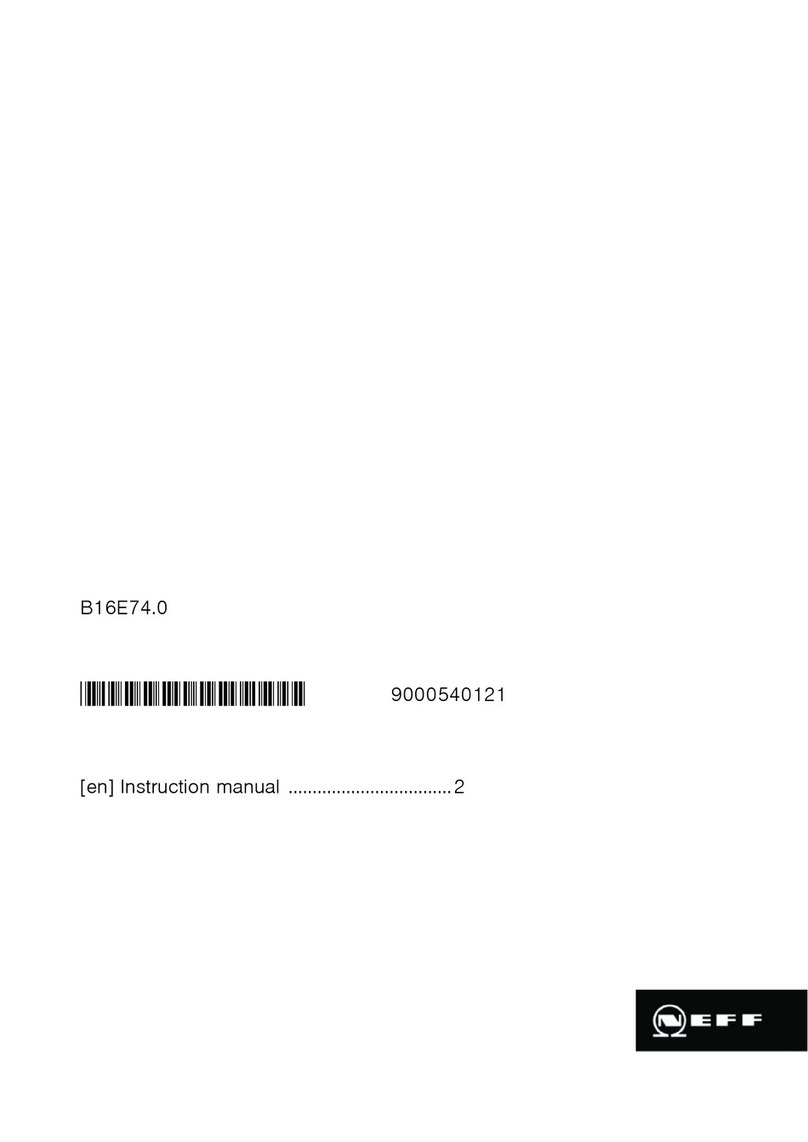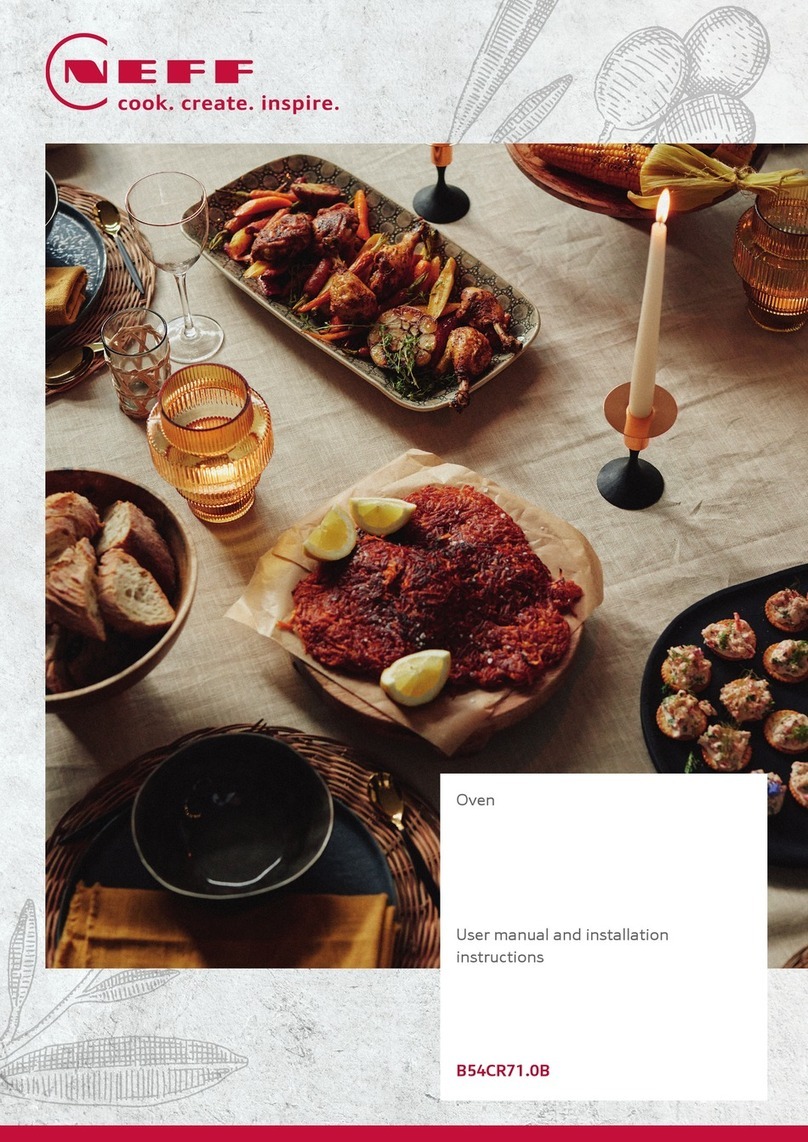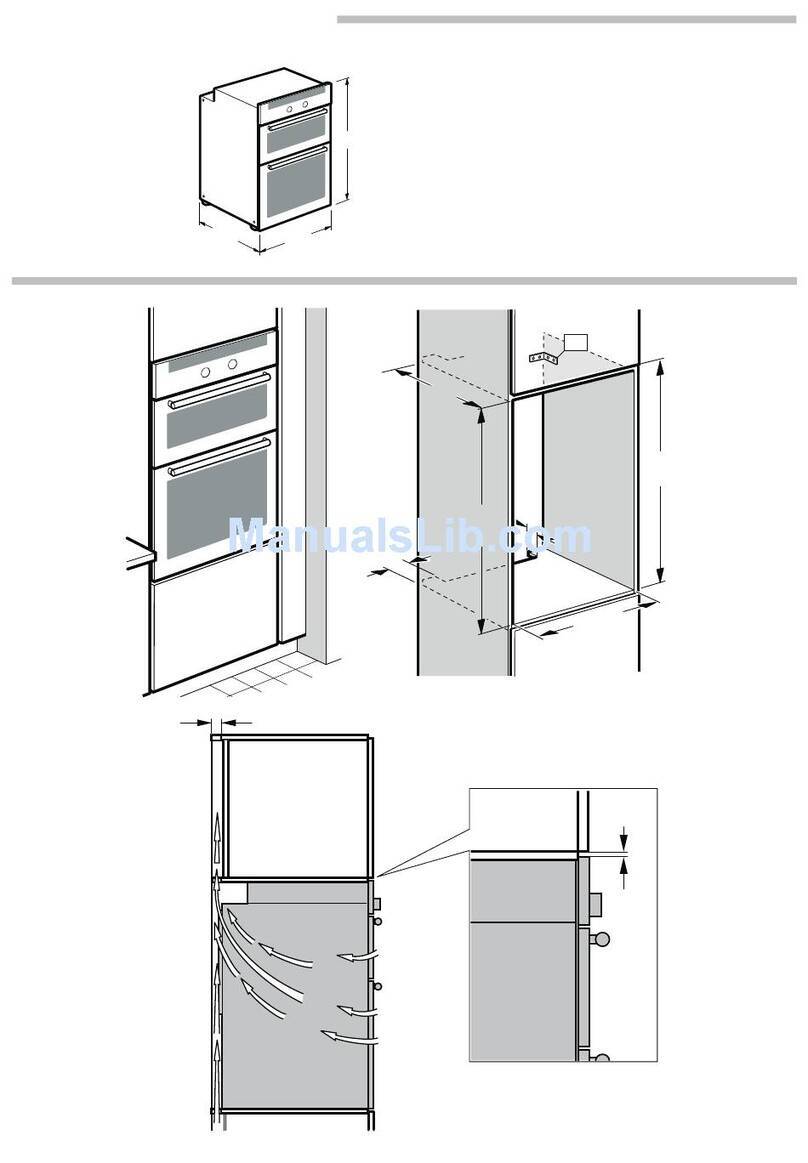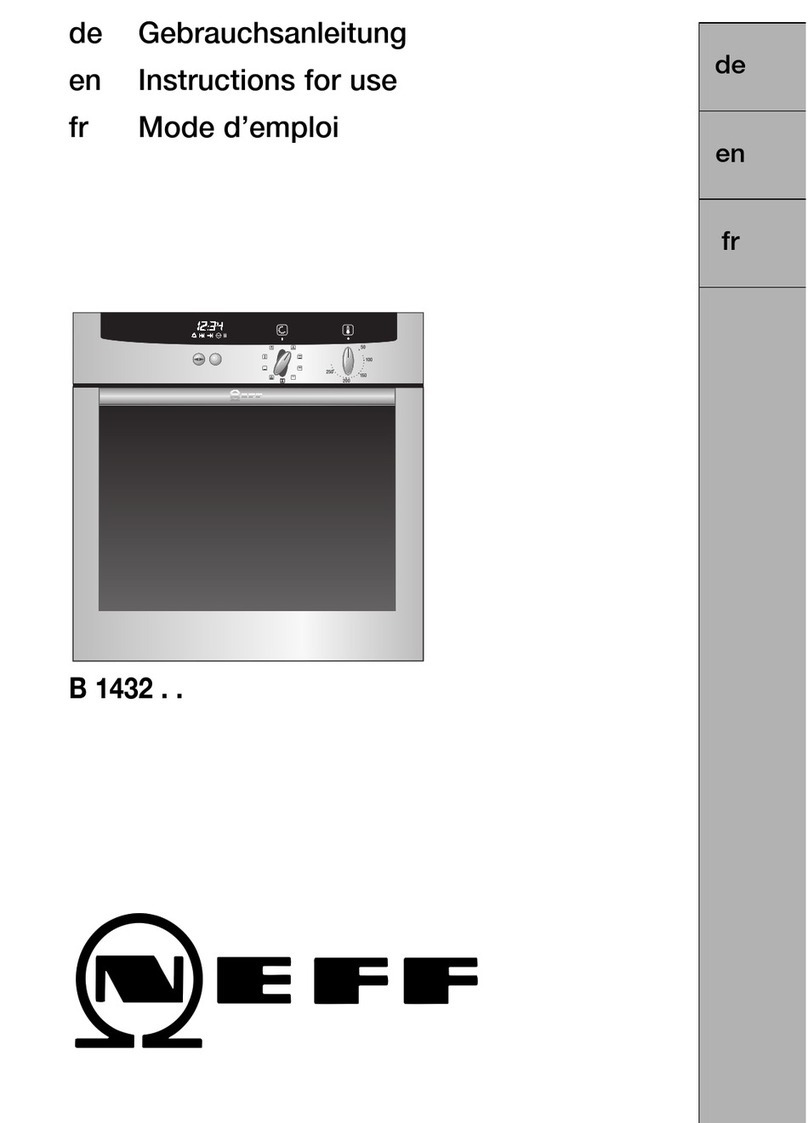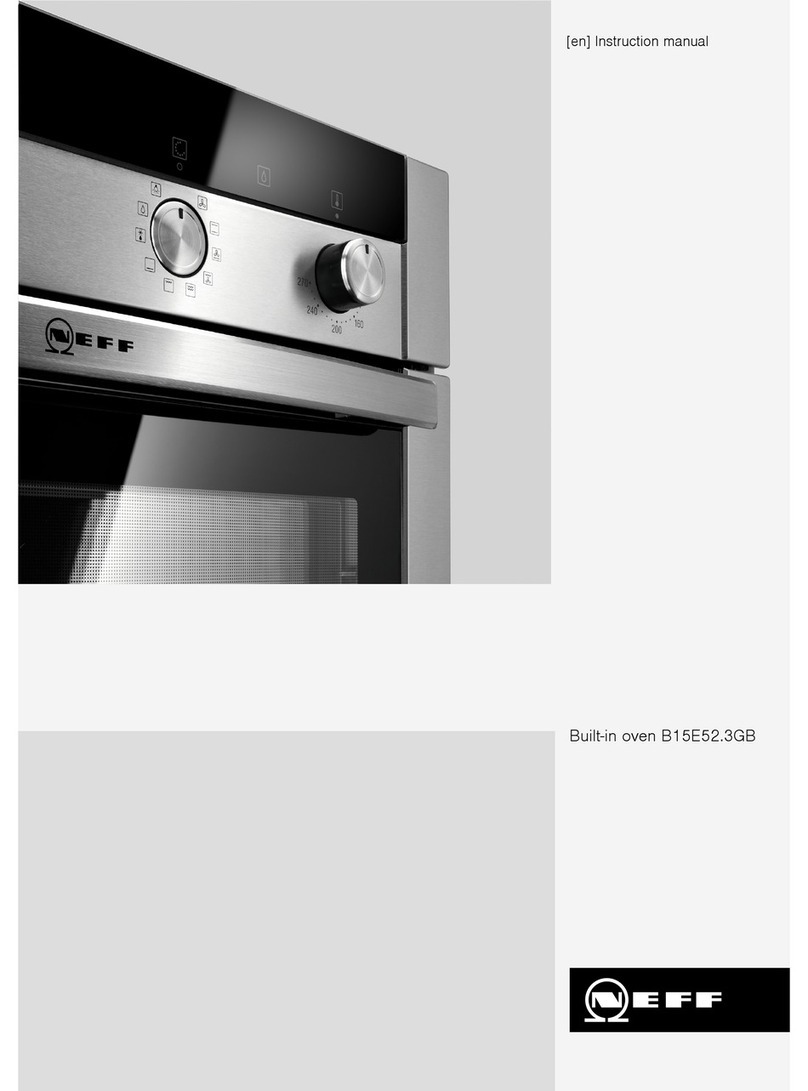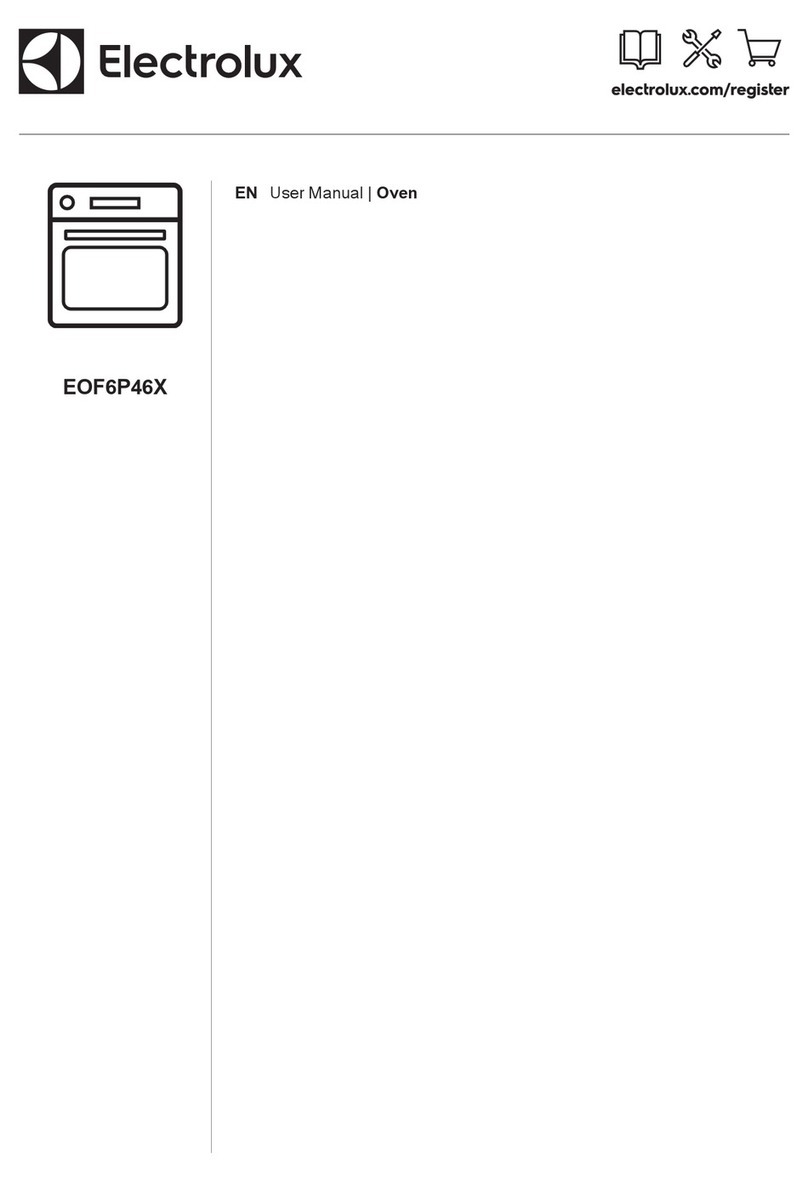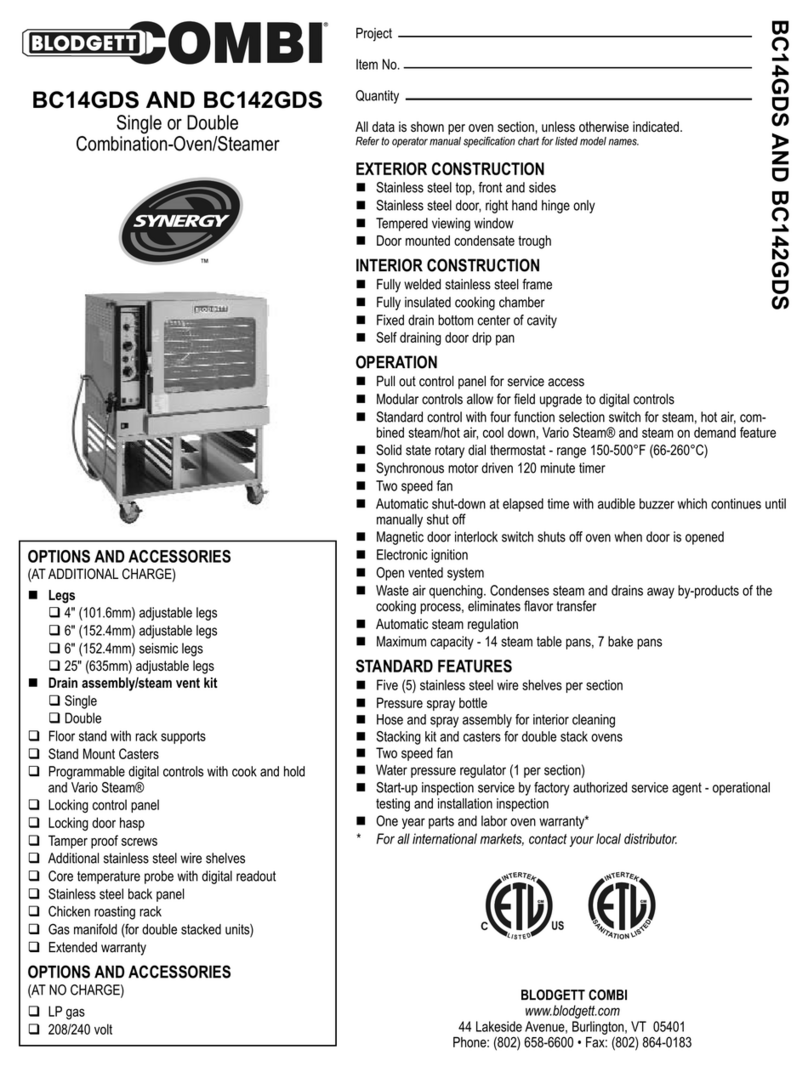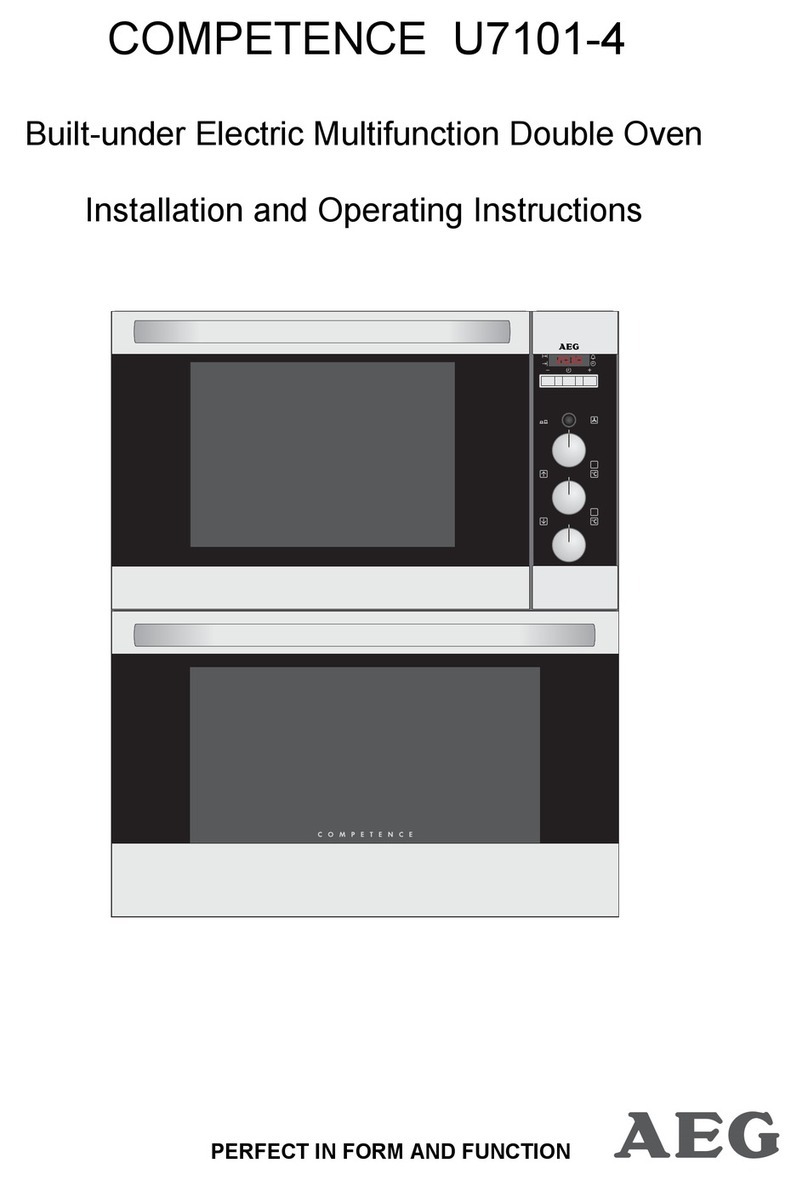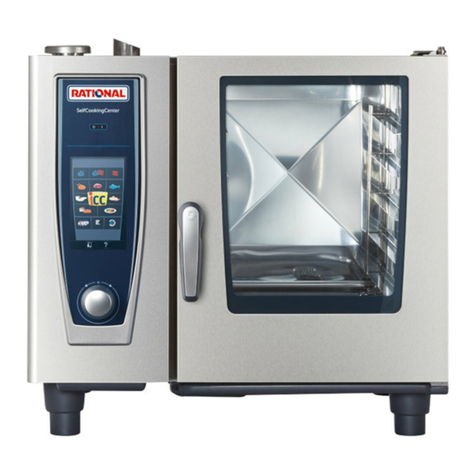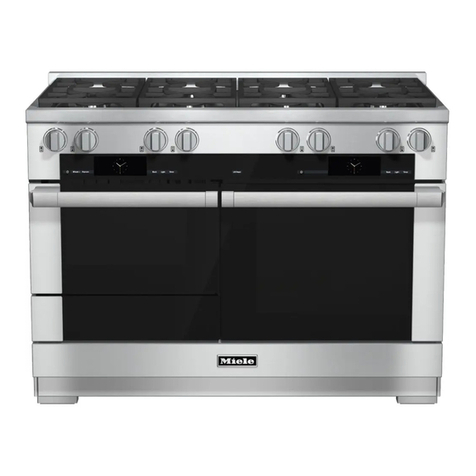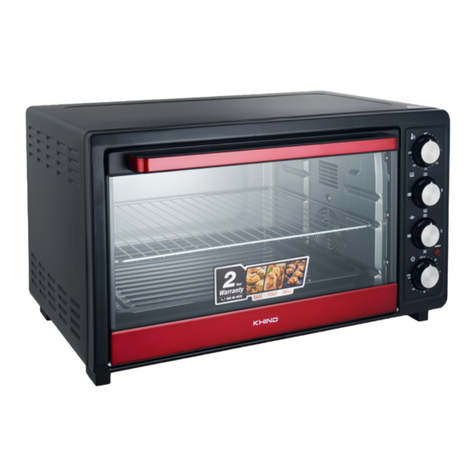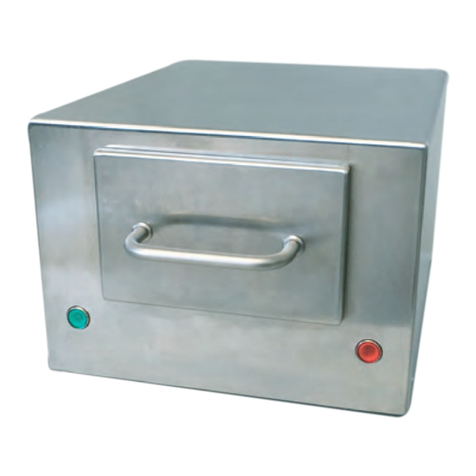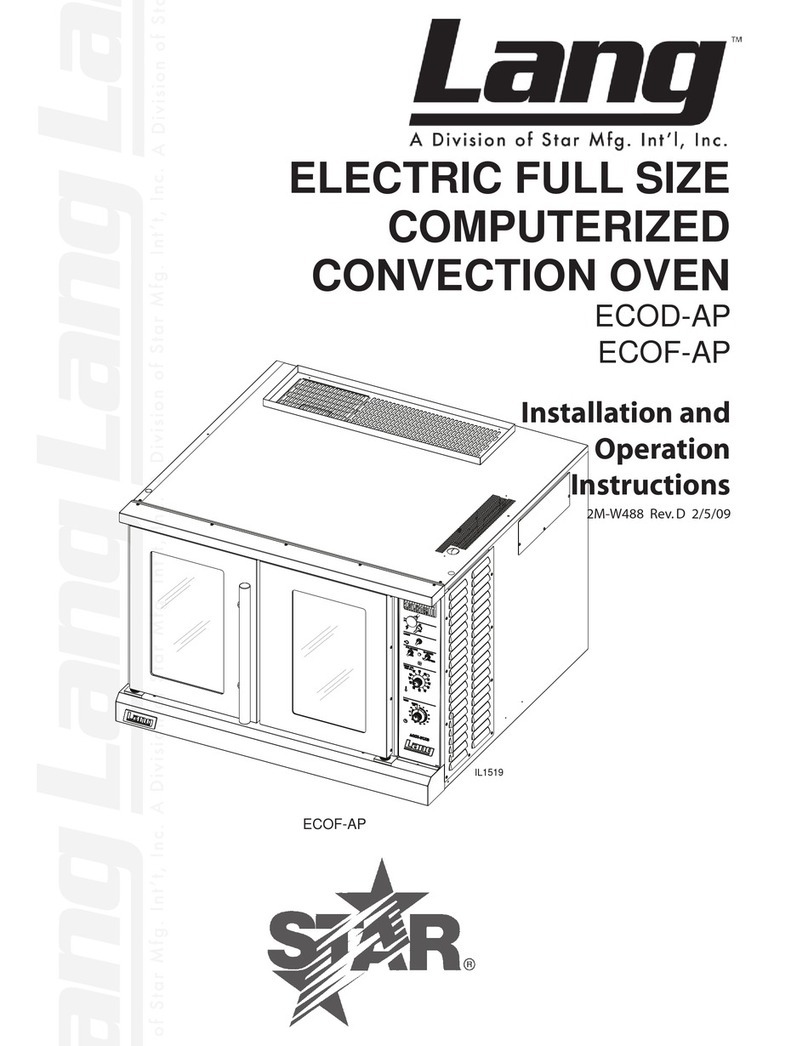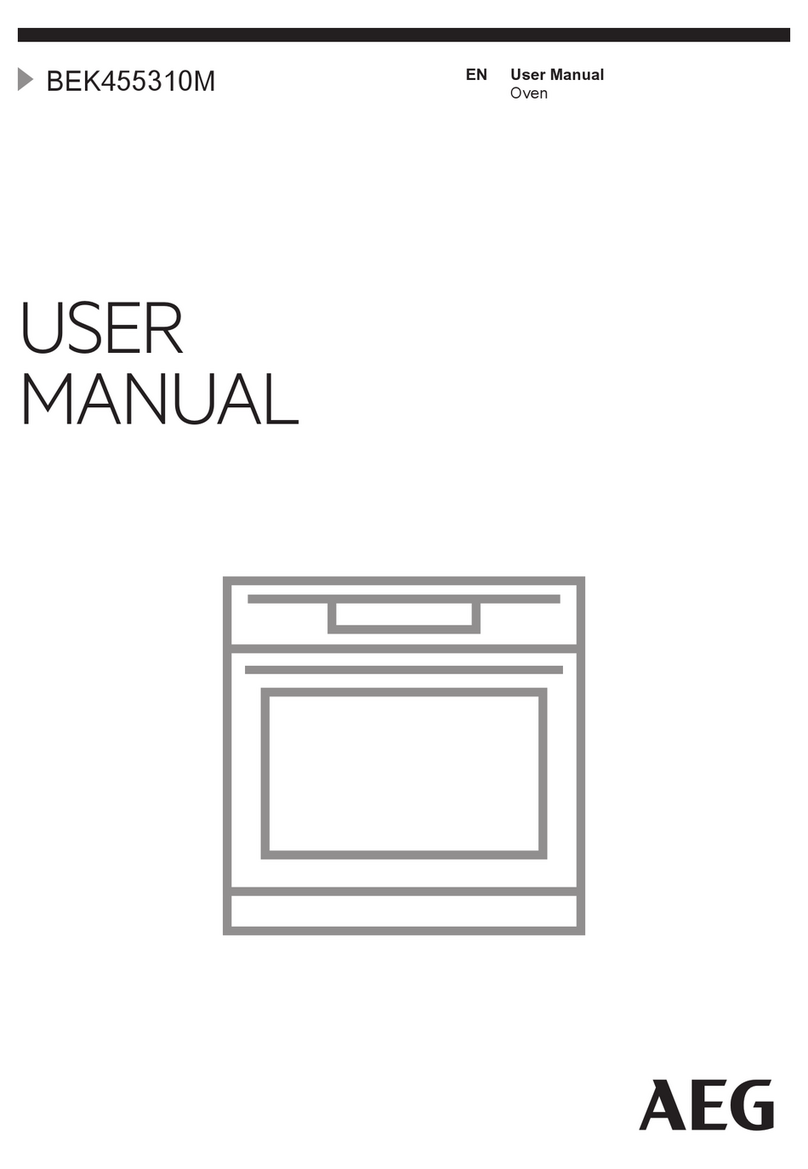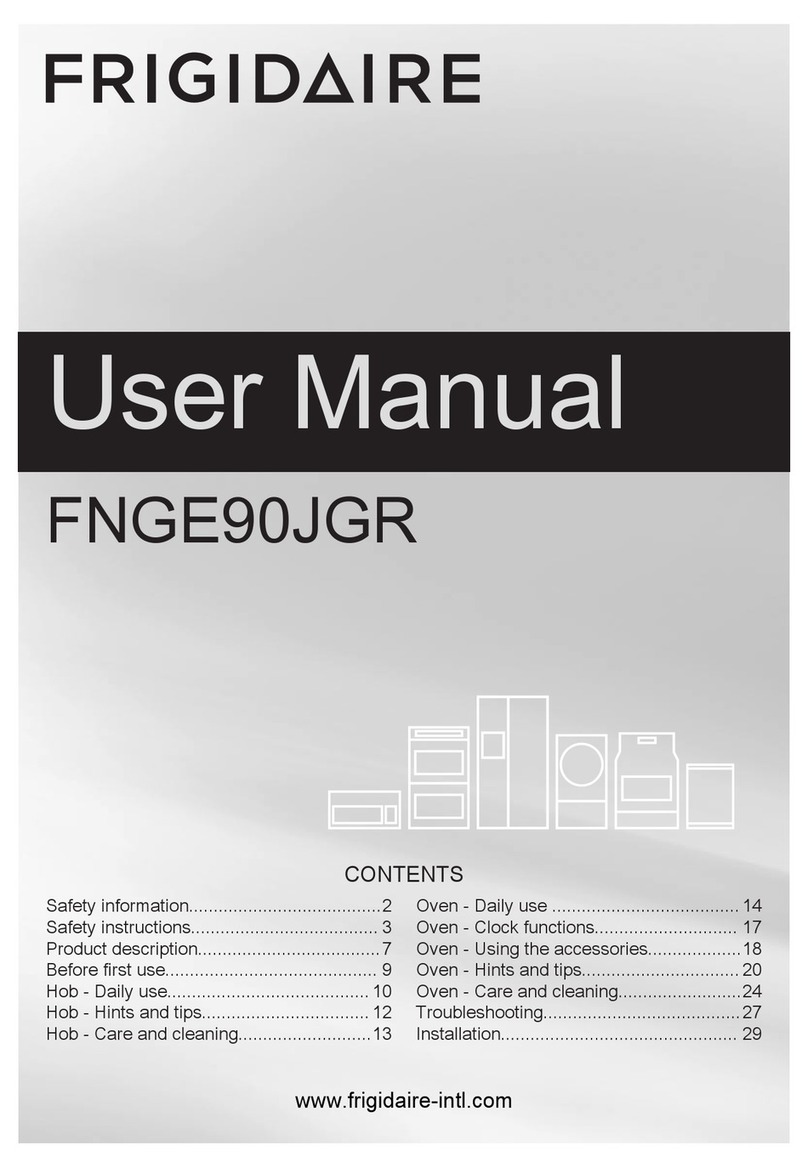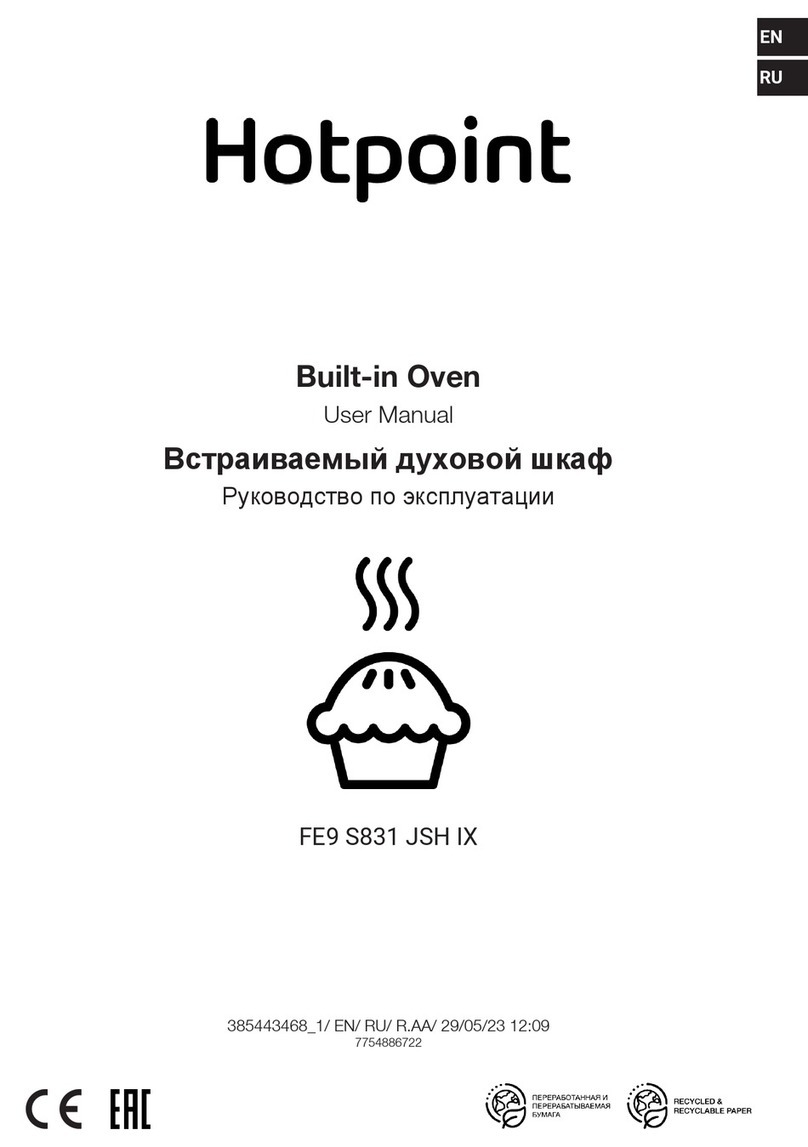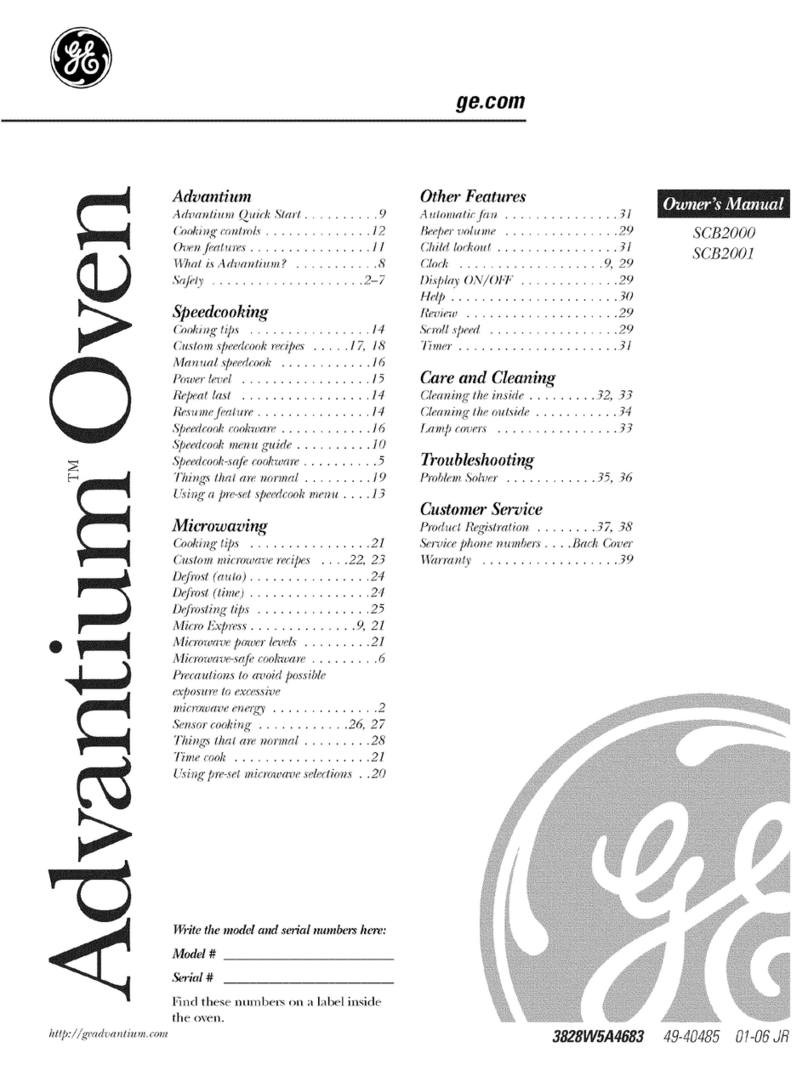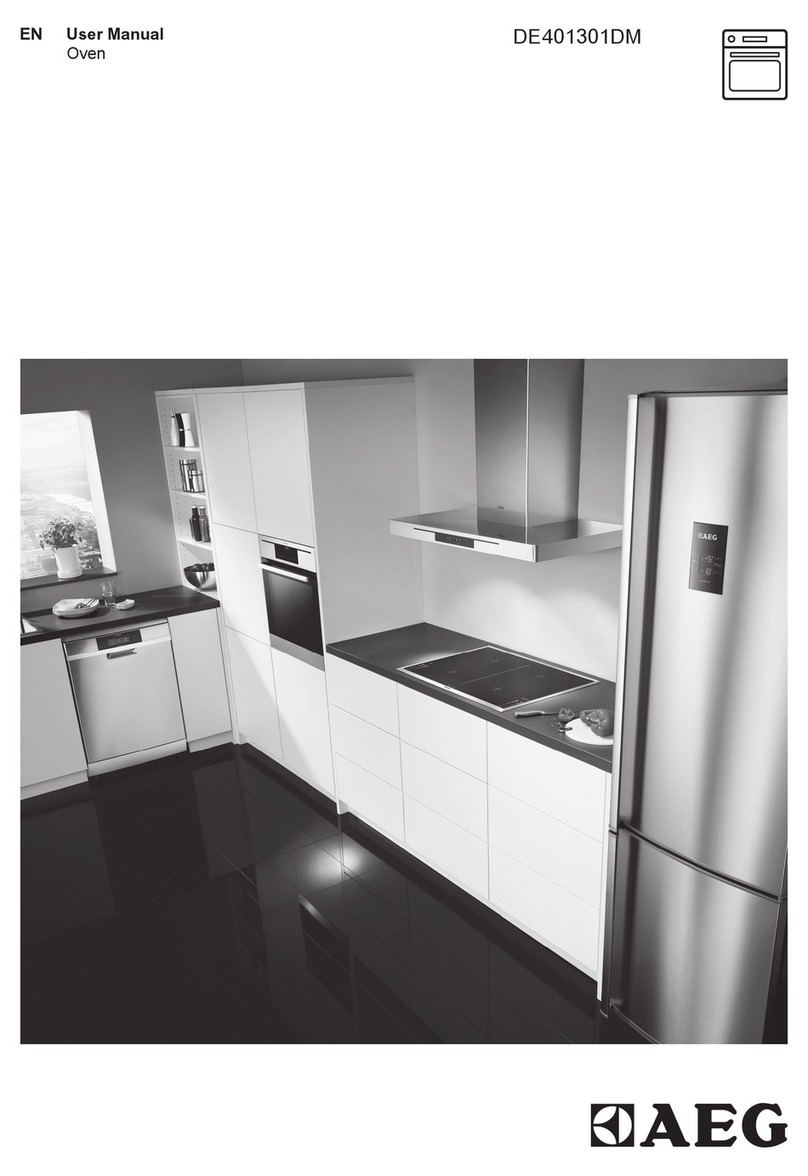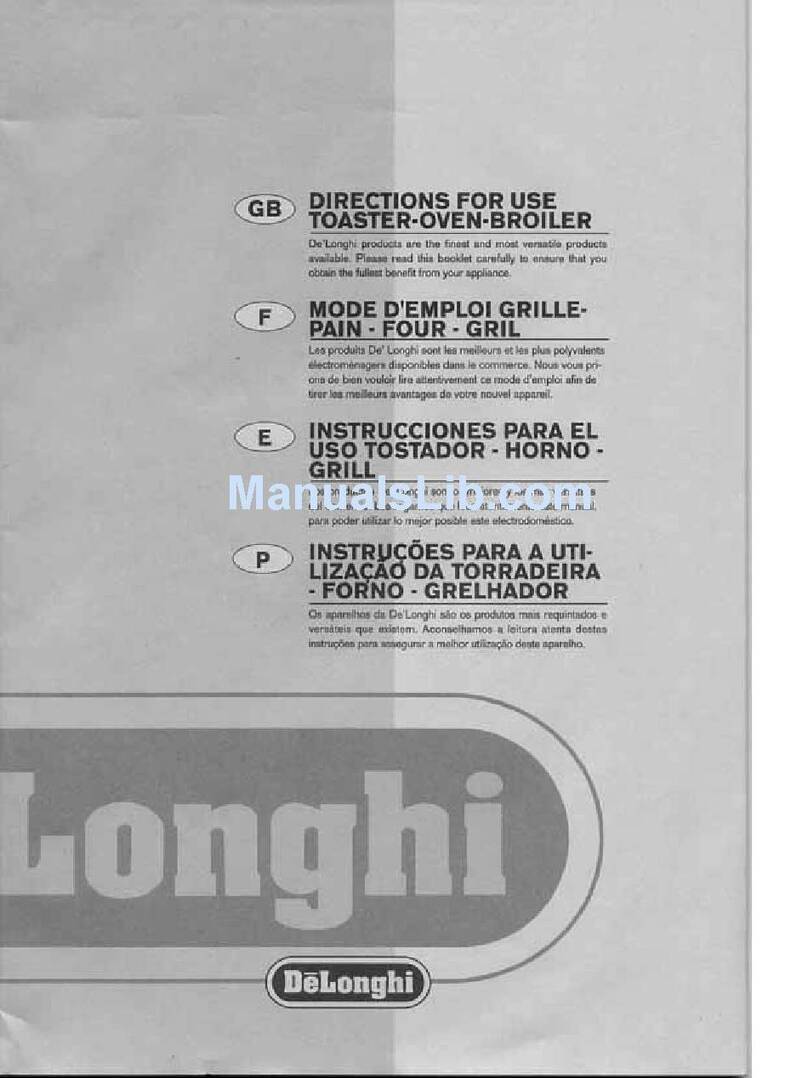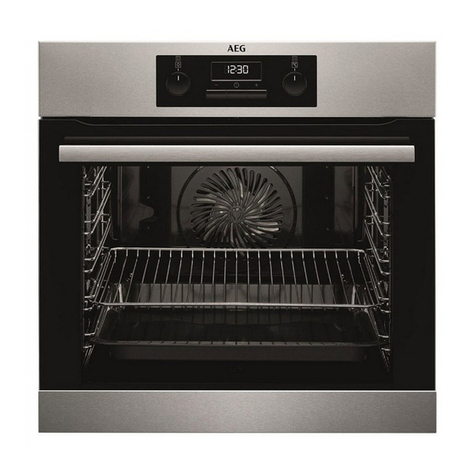
en Preventing material damage
6
1.7 Cleaning function
WARNING‒Risk of fire!
Loose food remnants, fat and meat juices
may catch fire when the cleaning function is in
progress.
▶Before you start the cleaning function, al-
ways remove coarse dirt from the cooking
compartment.
▶Never clean accessories at the same time.
The outside of the appliance gets very hot
when the cleaning function is in progress.
▶Never hang combustible objects, e.g. tea
towels, on the door handle.
▶Leave the front of the appliance clear.
▶Keep children at a safe distance.
If the door seal is damaged, a large amount
of heat is generated around the door.
▶Do not scrub or remove the seal.
▶Never operate the appliance if the seal is
damaged or missing.
WARNING‒Risk of serious harm to
health!
The appliance gets very hot when the clean-
ing function is in progress. The non-stick coat-
ing on baking trays and tins is destroyed and
noxious gases are released.
▶Never clean non-stick baking trays or bak-
ing tins using the cleaning function.
▶Never clean accessories at the same time.
WARNING‒Risk of harm to health!
The cleaning function heats up the cooking
compartment to a very high temperature so
that food left over from roasting, grilling and
baking will burn off. This process releases va-
pours, which can irritate mucous membranes.
▶Keep the kitchen well ventilated while the
cleaning function is running.
▶Do not remain in the room for long periods.
▶Keep children and pets away.
WARNING‒Risk of burns!
The cooking compartment gets very hot when
the cleaning function is in progress.
▶Never open the appliance door.
▶Allow the appliance to cool down.
▶Keep children at a safe distance.
The outside of the appliance gets very hot
when the cleaning function is in progress.
▶Never touch the appliance door.
▶Allow the appliance to cool down.
▶Keep children at a safe distance.
2 Preventing material damage
2.1 General
ATTENTION!
Objects on the cooking compartment floor at over
50°C will cause heat to build up. The baking and
roasting times will no longer be correct and the enamel
will be damaged.
▶Do not place any accessories, greaseproof paper or
foil of any kind on the cooking compartment floor.
▶Only place cookware on the cooking compartment
floor if a temperature above 50°C has been set.
When the cooking compartment is hot, any water in-
side it will create steam. The change in temperature
may cause damage.
▶Never pour water into the cooking compartment
when it is still hot.
▶Never place cookware containing water on the
cooking compartment floor.
The prolonged presence of moisture in the cooking
compartment leads to corrosion.
▶Allow the cooking compartment to dry after use.
▶Do not keep moist food in the cooking compartment
for a long time with the door closed.
▶Do not store food in the cooking compartment.
Leaving the appliance to cool down with the door open
will damage the front of neighbouring kitchen units over
time.
▶Always allow the cooking compartment to cool
down with the door closed after cooking at high
temperatures.
▶Take care not to trap anything in the appliance
door.
▶Only leave the cooking compartment to dry with the
door open if a lot of moisture was produced during
operation.
Fruit juice dripping from the baking tray leaves stains
that cannot be removed.
▶When baking very juicy fruit flans, do not pack too
much on the baking tray.
▶If possible, use the deeper universal pan.
Using oven cleaner in a hot cooking compartment
damages the enamel.
▶Never use oven cleaner in the cooking compartment
when it is still warm.
▶Remove all food remnants from the cooking com-
partment and the appliance door before you next
heat up the appliance.
If the seal is very dirty, the appliance door will no
longer close properly during operation. This may dam-
age the front of adjacent kitchen units.
▶Keep the seal clean at all times.
